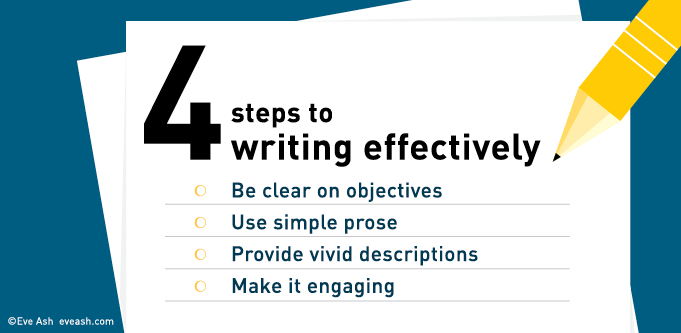Were you put off writing by pedantic English teachers during your school years? Wading through five hundred year-old plays and analysing a character’s motives for tortuous essays does not necessarily maketh great authors. Possibly Will Shakespeare himself would today be writing movies or dramas for Netflix, where the plots might be the same but his language would be pithier.
Our attitudes to writing
Many people find writing a chore. Some people may be well-known for excellent reports, fine blogs, well researched, succinct narratives, yet they will confess that they hate writing. You may be a compelling public speaker who “nails” any topic, but writing may be your enemy.
Writing as a learning tool
Some lucky souls are born wordsmiths, but we can all hone our writing skills. Some love to learn by writing about the very topic they are grappling with. So to consider writing as a learning tool is a good way to help yourself move forward when blocked to writing.
Writing is therapeutic and a mental growth hormone. We write impressively when we adhere to these four key points:
- Be clear on objectives
The most important thing is to get started and not procrastinate. You make it worse if you keep putting it off. Clear goals help you move forward. This is challenging when you’re still unsure about what you really want to say, or because a topic cannot be summarised with a flourish. University students are expected to produce an exercise in stringent logic and crafted phrases in several thousand words. In the workplace, time and word count might be a luxury.
Do a brain dump first of everything you think is needed, try a mind map or a list of points. Then scale it back, like a big chunk of marble you’re sculpting into shape. This is not an exercise about saying everything you can think of. Always ask yourself “who am I trying to reach? How much time will they likely have? What messages do I want to be derived from this? What is the most important takeaway?”
- Use simple prose
Deploying complex sentence structure or flinging polysyllabic words around might pique a reader’s interest. Generally, you’re better off keeping things simple, with crisp sentences that don’t brandish semi-colons or obsolete terminology. Ernest Hemingway described prose as architecture, not interior decoration. This doesn’t mean every sentence has to be banal, or worse, the type of management speak that’s no longer resonating with readers. The most timeless ad campaigns are the result of months of market research, robust debate between copywriters, account directors and clients, and a hell of a lot of iteration. That memorable byline or catchphrase evolved slowly, but it’s surely worth a thousand, rambling sentences.
- Provide vivid descriptions
People enjoy examples, anecdotes and imagery because it stimulates thought and takes readers on your journey towards your goals. Don’t just stick to just concepts or bland generalisations. Hemingway described the act of writing as “bleeding”. Right away, he captures the intensity and struggle of writing, without extraneous language.
- Make it engaging
Engage with a brilliant sentence at the start or at the end. Understate rather than overstate. Occasionally people over-rationalise what they’re saying, and disappear down intellectual “rabbit holes” in search of uniqueness of expression. When this happens, they fail to engage (most) readers. An important subject shouldn’t be wreathed in obscurity. No matter what you’re discussing or explaining, you want readers to be stimulated and aligned for where you’re taking them. Study the writers you admire, note their technique – just as you would a swimmer or peak athlete.
Read it critically
You will have good days when your writing “flows”. Even so, always check through what you’ve written, not just for grammar and punctuation but also to rhetorically question whether you’ve done your topic justice. Maybe you have. The point is, don’t be complacent even if writing comes naturally to you. Excellent writing entails a certain amount of sweat equity, which might take years before ease and speedy delivery are yours for the picking.
Impressive writing is a tough gig. No matter whether you’re stuck with business reports, annual reports, project updates, blogs, or maybe you’re a budding novelist – these four steps outlined above can help you on your journey. It calls for thought, application and a willingness to be expressive. It demands authenticity and reflection. Best of all, it is excellent for brain training, with ripple effects for your other mental activities.
NOW WATCH: Achieving SMART Goals

